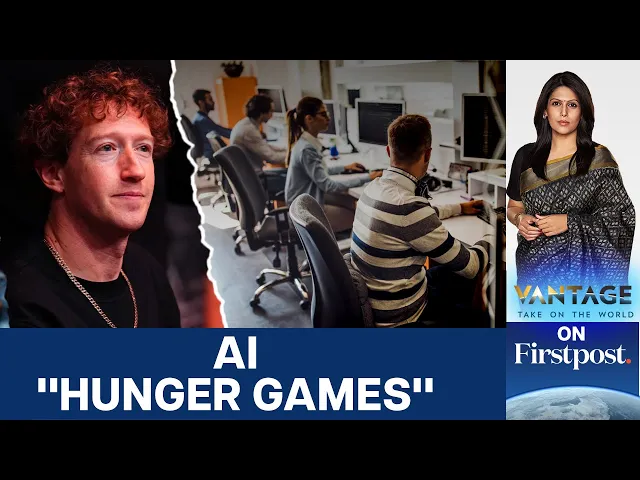$100 Million for One Engineer? How Meta Is Poaching AI Talent with Insane Bonuses | Vantage

Meta pays $100 million for top AI talent
In the high-stakes battle for artificial intelligence dominance, a new compensation reality is emerging that's shattering traditional tech industry norms. A recent bombshell report revealed that Meta is offering compensation packages potentially worth $100 million to poach elite AI researchers from competitors, signaling just how desperately major tech companies are scrambling to secure the brightest minds in the field. This isn't just an isolated case of extravagant spending—it's a symptom of the AI talent war reaching fever pitch.
Key revelations about the AI talent arms race:
- Meta is leading an aggressive recruitment campaign targeting elite AI researchers with unprecedented compensation packages reaching nine figures, comprising both cash and stock options with four-year vesting periods
- Competition for specialized AI talent has created a severe imbalance between supply and demand, with an estimated 300,000 AI professionals worldwide competing for roughly 800,000 open positions
- The compensation disparity between elite and average AI engineers is growing dramatically, with top performers potentially earning 100-1000 times more than their peers due to their outsized impact on company value
The most striking insight from this development isn't just the eye-popping numbers but what they represent: the creation of a new "superclass" of technological talent. Unlike previous tech booms where companies competed primarily for software engineers with relatively similar skill levels, the AI revolution has created a profoundly stratified talent market. Companies like Meta have concluded that exceptional AI researchers—those who can develop groundbreaking models or solve complex challenges—can generate exponentially more value than even very good engineers.
This valuation approach makes perfect business sense when examined closely. If Meta believes a single elite researcher can help them develop an AI system worth billions or prevent them from falling behind competitors like OpenAI, Google, or Anthropic, then $100 million represents a rational investment. We're witnessing the application of a "power law" to human capital in tech—the recognition that in AI development, the difference between the 90th percentile and the 99.9th percentile of talent isn't incremental but potentially transformative.
However, this frenzied talent grab overlooks critical dimensions of successful AI development. While individual brilliance matters enormously, the history of breakthrough technologies suggests that collaborative environments and institutional knowledge often prove
Recent Videos
How To Earn MONEY With Images (No Bullsh*t)
Smart earnings from your image collection In today's digital economy, passive income streams have become increasingly accessible to creators with various skill sets. A recent YouTube video cuts through the hype to explore legitimate ways photographers, designers, and even casual smartphone users can monetize their image collections. The strategies outlined don't rely on unrealistic promises or complicated schemes—instead, they focus on established marketplaces with proven revenue potential for image creators. Key Points Stock photography platforms like Shutterstock, Adobe Stock, and Getty Images remain viable income sources when you understand their specific requirements and optimize your submissions accordingly. Specialized marketplaces focusing...
Oct 3, 2025New SHAPE SHIFTING AI Robot Is Freaking People Out
Liquid robots will change everything In the quiet labs of Carnegie Mellon University, scientists have created something that feels plucked from science fiction—a magnetic slime robot that can transform between liquid and solid states, slipping through tight spaces before reassembling on the other side. This technology, showcased in a recent YouTube video, represents a significant leap beyond traditional robotics into a realm where machines mimic not just animal movements, but their fundamental physical properties. While the internet might be buzzing with dystopian concerns about "shape-shifting terminators," the reality offers far more promising applications that could revolutionize medicine, rescue operations, and...
Oct 3, 2025How To Do Homeless AI Tiktok Trend (Tiktok Homeless AI Tutorial)
AI homeless trend raises ethical concerns In an era where social media trends evolve faster than we can comprehend them, TikTok's "homeless AI" trend has sparked both creative engagement and serious ethical questions. The trend, which involves using AI to transform ordinary photos into images depicting homelessness, has rapidly gained traction across the platform, with creators eagerly jumping on board to showcase their digital transformations. While the technical process is relatively straightforward, the implications of digitally "becoming homeless" for entertainment deserve careful consideration. The video tutorial provides a step-by-step guide on creating these AI-generated images, explaining how users can transform...
